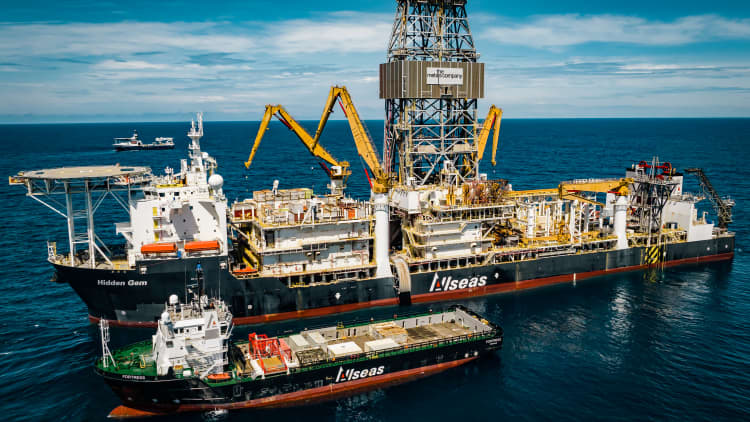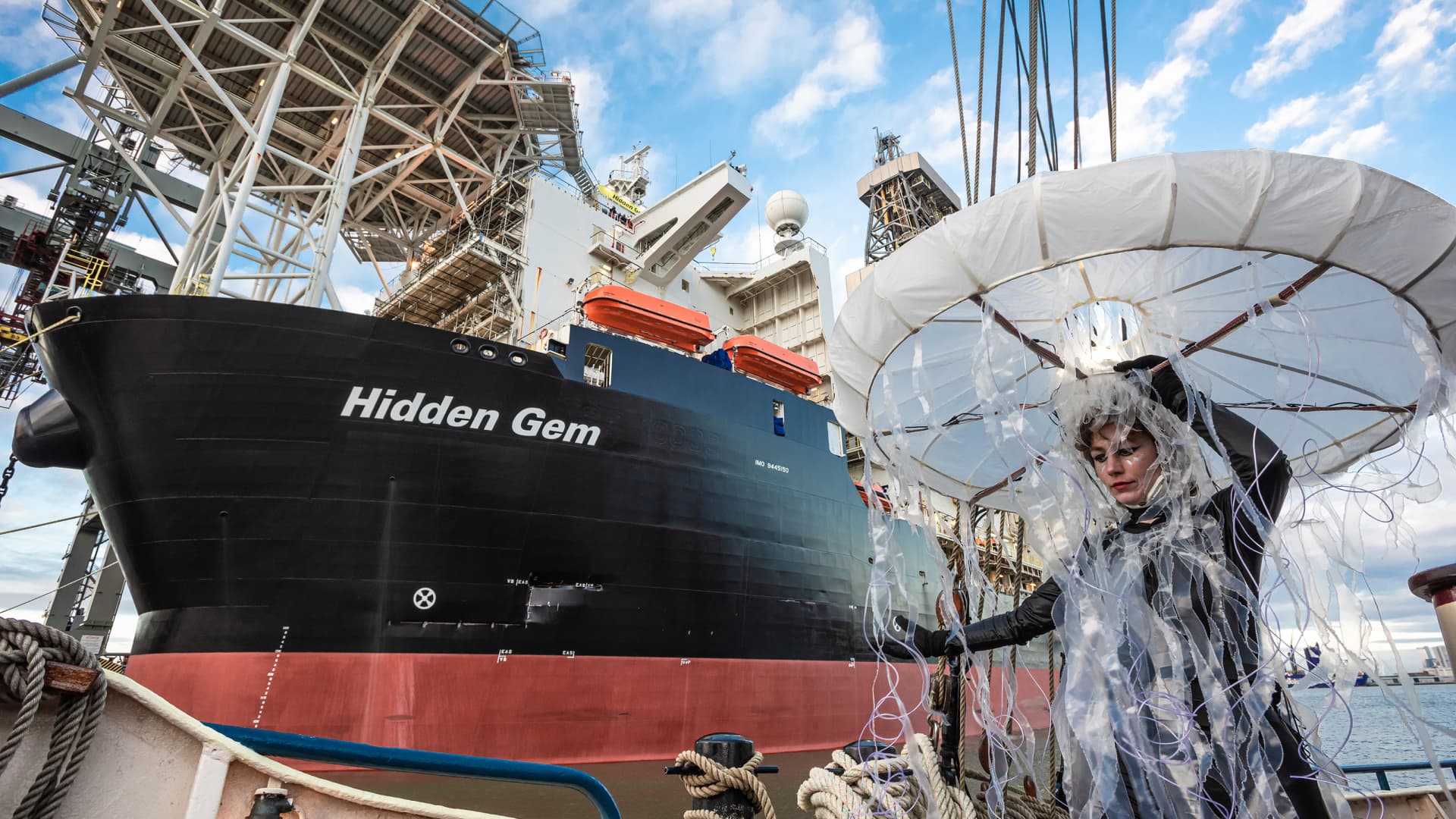
Activists take part at a “Look Down action” rally to stop deep sea mining outside the European Parliament in Brussels on March 6, 2023. (Photo by Kenzo TRIBOUILLARD / AFP) (Photo by KENZO TRIBOUILLARD/AFP via Getty Images)
Kenzo Tribouillard | Afp | Getty Images
Norway is poised to become one of the first countries in the world to approve the controversial practice of deep-sea mining.
In a parliamentary vote on Tuesday, lawmakers in the northern European country are expected to approve the government’s proposal to open Norwegian waters for commercial-scale deep-sea mining.
The vote is expected to pass smoothly after the government’s plans received cross-party support late last year.
Advocates say removing metals and minerals from the ocean’s seabed is necessary to facilitate a global transition away from fossil fuels, adding that the practice is less environmentally damaging than land-based mining.
Critics say deep-sea mining is “extremely destructive,” while scientists warn the full environmental impacts are hard to predict.
Critical minerals such as cobalt, nickel, copper and manganese can be found in potato-sized nodules at the bottom of the seafloor. These minerals are used for electric vehicle batteries, wind turbines and solar panels.
The Environmental Justice Foundation, an international NGO, says the bottom line is that any possible benefits from deep-sea mining “do not outweigh the environmental and economic risks.”
What’s being proposed?
Norway’s proposal paves the way for companies to apply to mine for critical minerals in its national waters near the Svalbard archipelago. The area, which is part of Norway’s extended seabed shelf, is estimated to be larger than the U.K. at roughly 280,000 square kilometers (108,108 square miles).
Norway’s government does not intend to immediately start drilling for critical minerals, if the plan is approved. Instead, companies will need to submit proposals for licenses that will be voted on a case-by-case basis in parliament.
The approval of deep-sea mining would put Norway at odds with both the U.K. and the European Commission, the EU’s executive arm, which have pushed for a temporary ban on environmental concerns.
ROTTERDAM, SOUTH HOLLAND, NETHERLANDS – 2022/02/08: The deep-sea creatures on board the Luciana and the mining vessel Hidden Gem seen in the background, during the demonstration.
Ocean Rebellions protest The Deep Sea Says No Why the deep sea? The deep seabed is largely unexplored, many areas have unique marine life (an estimated 10-million life forms and most are undiscovered) and many areas are important to the survival of all ocean life. Deep Sea Mining in areas like the Clarion Clipperton Fracture Zone (CCFZ) (Pacific Ocean) will destroy the deep seabed and the life that depends on it, destroying corals and sponges that have taken thousands of years to grow. (Photo by Charles M. Vella/SOPA Images/LightRocket via Getty Images)
Sopa Images | Lightrocket | Getty Images
The Norway Environment Agency has previously criticized the government’s impact assessment of the plan, while 120 EU lawmakers wrote an open letter in November calling on the country’s parliament to reject the project.
The letter from EU lawmakers also warned about the risk that the proposal posed for marine biodiversity, the acceleration of climate change and for traditional activities, such as fisheries.
In a separate open letter calling for a pause to deep-sea mining, more than 800 marine science and policy experts across the globe warned that very little is known about deep-sea habitats and biodiversity.
They say that more robust research is necessary to better understand what’s at stake.
“The sheer importance of the ocean to our planet and people, and the risk of large-scale and permanent loss of biodiversity, ecosystems, and ecosystem functions, necessitates a pause of all efforts to begin mining of the deep sea,” the letter says.




![At $28,000 off, is the Jeep Wagoneer S the best EV deal going? [update]](https://i0.wp.com/electrek.co/wp-content/uploads/sites/3/2025/06/jeep_wagoneer_deals.jpg?resize=1200,628&quality=82&strip=all&ssl=1)







